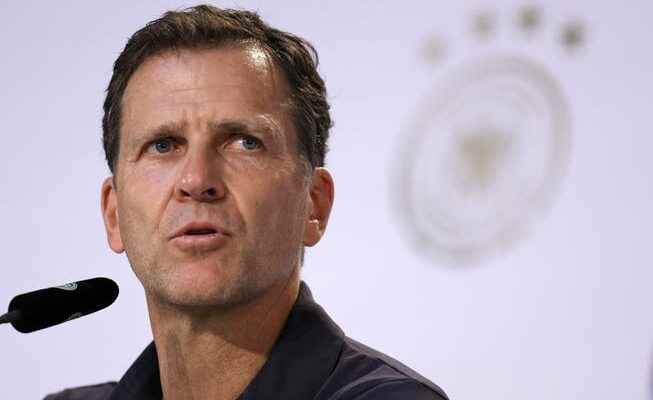A few days after leaving the group stage of the World Cup, an agreement was reached between Bierhoff and the German Football Association on the termination of the contract. It is still unclear who will succeed Bierhoff.
Oliver Bierhoff says goodbye to the DFB.
(dpa) Four days after the German national soccer team was eliminated from the preliminary round at the World Cup in Qatar, Oliver Bierhoff took the consequences. The 54-year-old is leaving the German Football Association after 18 years, and the two parties agreed on Monday to terminate the contract, which runs until 2024.
“I’m paving the way for new decisions,” said Bierhoff in a statement on Monday evening: “Some decisions that we were convinced of have not turned out to be the right ones. No one regrets that more than me. I take responsibility for that.” The top official thus revised the position he expressed immediately after the end of the World Cup on Thursday that he wanted to head for the 2024 European Championships at home as the next big goal.
The 2014 World Cup title as a highlight
Bierhoff vacates the post as DFB director responsible for the national teams and the academy before the crisis talks with DFB President Bernd Neuendorf and DFL Supervisory Board Chairman Hans-Joachim Watzke announced for mid-week. The DFB committees will discuss the succession plan. It was initially unclear what consequences Hansi Flick’s resignation would have for the future as national coach.
Bierhoff came to the DFB in 2004, in a role that the association had never seen before. As team manager, he played a key role in the “summer fairy tale” at the home World Cup two years later, alongside national coach Jürgen Klinsmann. With great success he created a spirit of optimism around the DFB team, which culminated in the 2014 World Cup triumph in Brazil with Joachim Löw as national coach.
Oliver Bierhoff and the #DFB have agreed today to prematurely terminate their contract, which runs until 2024.
We wish Oliver #Bierhoff All the best for his future work.
ℹ️➡️ https://t.co/yOQHiuWZpD pic.twitter.com/8NimvnYBco
— DFB (Federation) (@DFB) December 5, 2022
His marketing concepts were interpreted negatively
For Bierhoff, parallel to the sporting decline, a continuous loss of acceptance among the fans followed at the latest after the EM-Aus 2016. His marketing concepts were interpreted negatively. The term “The Team” he introduced as a brand message for the national team didn’t catch on at all. The completion of the DFB Academy in Frankfurt as the new association headquarters was a counterpoint to the critical mood and an affair of the heart for the 1996 European champion.
Even with the tournament planning, things didn’t go smoothly for the former centre-forward. His hymn-acclaimed cabin village Campo Bahia in Brazil was the last stroke of luck as team quarters. There was a lot of criticism for the hotel in Vatutinki near Moscow in 2018, especially after the World Cup. The Zulal Wellness Resort in Al Ruwais in northern Qatar has also become a symbol of a national team that is too sheltered and isolated. After failing again in the preliminary round, Bierhoff was even more in the focus of disappointed German football fans than Flick.
